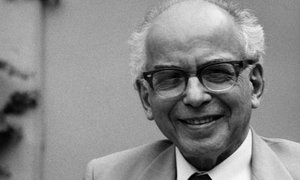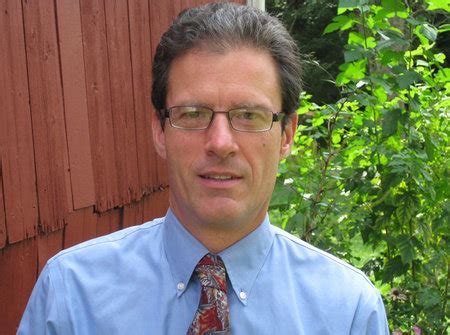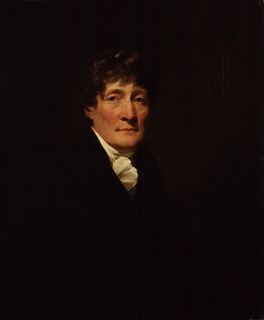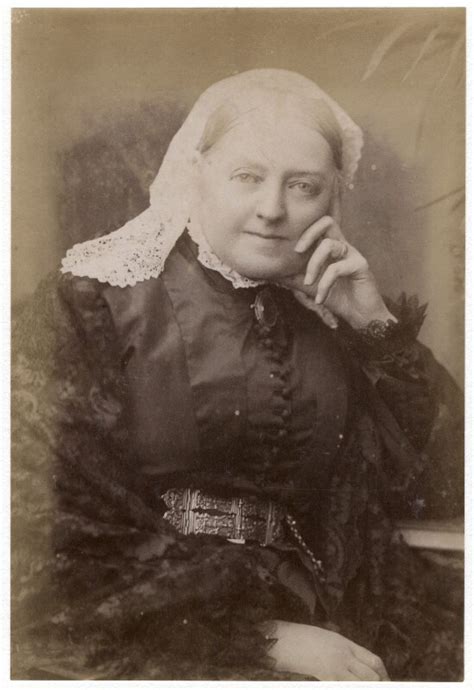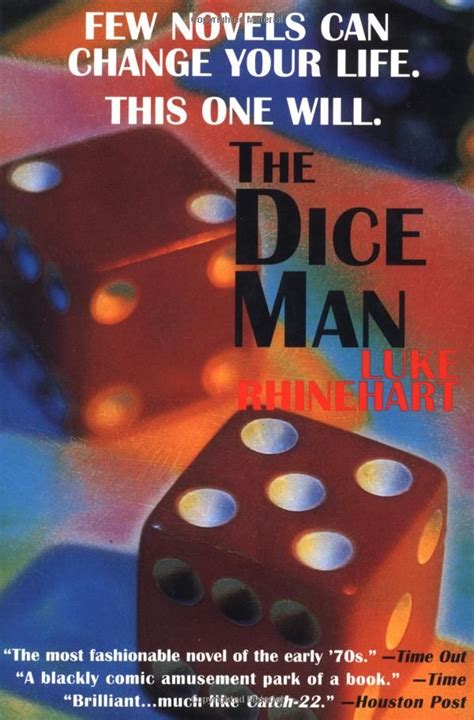Top 1200 Whom Quotes & Sayings - Page 6
Explore popular Whom quotes.
Last updated on December 25, 2024.
O eloquent, just, and mighty Death! whom none could advise, thou hast persuaded; what none hath dared, thou hast done; and whom all the world hath flattered, thou only hath cast out of the world and despised. Thou hast drawn together all the far-stretched greatness, all the pride, cruelty, and ambition of man, and covered it all over with these two narrow words, Hic jacet!
There is a virtuous fear, which is the effect of faith; and there is a vicious fear, which is the product of doubt. The former leads to hope, as relying on God, in whom we believe; the latter inclines to despair, as not relying on God, in whom we do not believe. Persons of the one character fear to lose God; persons of the other character fear to find Him.
How many of us have conflicts with someone else- and how many of us pray for that person? We have individuals with whom we are competitive, or whom we dislike or have a quarrel with; but very few of us have true enemies in the martial sense. And yet if Lincoln could pray fervently- and contemporary reports indicate he did- for the people who were opposing him, how much more can we do for someone we just find a little irritating?
The criminal law has, from the point of view of thwarted virtue, the merit of allowing an outlet for those impulses of aggression which cowardice, disguised as morality, restrains in their more spontaneous forms. War has the same merit. You must not kill you neighbor, whom perhaps you genuinely hate, but by a little propaganda this hate can be transferred to some foreign nation, against whom all your murderous impulses become patriotic heroism.
The Catholic novelist in the South will see many distorted images of Christ, but he will certainly feel that a distorted image of Christ is better than no image at all. I think he will feel a good deal more kinship with backwoods prophets and shouting fundamentalists than he will with those politer elements for whom the supernatural is an embarrassment and for whom religion has become a department of sociology or culture or personality development.
The bread which you hold back belongs to the hungry; the coat, which you guard in your locked storage-chests, belongs to the naked; the footwear mouldering in your closet belongs to those without shoes. The silver that you keep hidden in a safe place belongs to the one in need. Thus, however many are those whom you could have provided for, so many are those whom you wrong.
And what is an authentic madman? It is a man who preferred to become mad, in the socially accepted sense of the word, rather than forfeit a certain superior idea of human honor. So society has strangled in its asylums all those it wanted to get rid of or protect itself from, because they refused to become its accomplices in certain great nastinesses. For a madman is also a man whom society did not want to hear and whom it wanted to prevent from uttering certain intolerable truths.
I will not deny that my heart has long occupied itself with the most tender feelings for another. So strong were these impulses that I indulged myself by thinking that if I could not have him whom I admired whom I will admit it now when I would not before I loved then I would never want another. However those are sentiments best saved for one of Lily's romances. The heart is a far more practical thing and in its life is happily capable of more than a single attachment.
In America, we've had people that are political hacks making the biggest deals in the world, bigger than companies. You take these big companies, these trade deals are far bigger than these companies, and yet we don't use our great leaders, many of whom back me and many of whom back Hillary Clinton, I must say. But we don't use those people.
Prophet!" said I, "thing of evil! - prophet still, if bird or devil! By that Heaven that bends above us- by that God we both adore- Tell this soul with sorrow laden if, within the distant Aidenn, It shall clasp a sainted maiden whom the angels name Lenore- Clasp a rare and radiant maiden whom the angels name Lenore." Quoth the Raven, "Nevermore.
All of us need an identity which unites us with our neighbours, our countrymen, those people who are subject to the same rules and the same laws as us, those people with whom we might one day have to fight side by side to protect our inheritance, those people with whom we will suffer when attacked, those people whose destinies are in some way tied up with our own.
... faithfully and strenuously you should resist the heretics in defense of the only true and life-giving faith, which the Church has received - the apostles and imparted to her sons. For the Lord of all gave to His apostles the power of the Gospel, through whom also we have known the truth, that is, the doctrine of the Son of God: to whom also did the Lord declare: 'He who hears you, hears Me; and he who despises you, despises Me, and Him who sent Me' (Lk. 10:16).
There is so much about my fate that I cannot control, but other things do fall under the jurisdiction. I can decide how I spend my time, whom I interact with, whom I share my body and life and money and energy with. I can select what I can read and eat and study. I can choose how I'm going to regard unfortunate circumstances in my life-whether I will see them as curses or opportunities. I can choose my words and the tone of voice in which I speak to others. And most of all, I can choose my thoughts.
I am speaking to those among you who have retained some sovereign shred of their soul, unsold and unstamped: '- to the order of others'. If, in the chaos of the motives that have made you listen to the radio tonight, there was an honest, rational desire to learn what is wrong with the world, you are the man whom I wished to address. By the rules and terms of my code, one owes a rational statement to those whom it does concern and who are making an effort to know. Those who are making an effort to fail to understand me, are not a concern of mine.
We instinctively tend to limit for whom we exert ourselves. We do it for people like us, and for people whom we like. Jesus will have none of that. By depicting a Samaritan helping a Jew, Jesus could not have found a more forceful way to say that anyone at all in need - regardless of race, politics, class, and religion - is your neighbour. Not everyone is your brother or sister in faith, but everyone is your neighbour, and you must love your neighbour.
If... [Alban] Berg departs so radically from tradition, through his substitution of a symmetrical partitioning of the octave for the asymmetrical partionings of the major/minor system, he departs just as radically from the twelve-tone tradition that is represented in the music of Schoenberg and Webern, for whom the twelve-tone series was always an integral structure that could be transposed only as a unit, and for whom twelve-tone music always implied a constant and equivalent circulation of the totality of pitch classes.
Happy indeed the poet of whom, like Orpheus, nothing is known but an immortal name! Happy next, perhaps, the poet of whom, like Homer, nothing is known but the immortal works. The more the merely human part of the poet remains a mystery, the more willing is the reverence given to his divine mission.
Whenever any one informs us that he has found a man who knows all the arts, and all things else that anybody knows, and every single thing with a higher degree of accuracy than any other man - whoever tells us this, I think that we can only imagine him to be a simple creature who is likely to have been deceived by some wizard or actor whom he met, and whom he thought all-knowing, because he himself was unable to analyse the nature of knowledge and ignorance and imitation.
Indeed, I have observed one ingredient, somewhat necessary in a man’s composition towards happiness, which people of feeling would do well to acquire; a certain respect for the follies of mankind: for there are so many fools whom the opinion of the world entitles to regard, whom accident has placed in heights of which they are unworthy, that he who cannot restrain his contempt or indignation at the sight will be too often quarrelling with the disposal of things to relish that share which is allotted to himself.
These fellow-mortals, every one, must be accepted as they are: you can neither straighten their noses, nor brighten their wit, nor rectify their dispositions; and it is these people-amongst whom your life is passed-that it is needful you should tolerate, pity, and love: it is these more or less ugly, stupid, inconsistent people whose movements of goodness you should be able to admire-for whom you should cherish all possible hopes, all possible patience.
How to get rid of the greed is the point and to get rid of the greed is that if I buy something - for whom should I buy this one, for whom should I buy? Ah, this will be all right for another friend of mine, like that. If you train your mind on these lines, not for yourself, but for others, then you'll be amazed this greed will run away and you'll have joy.
My friends, let us try to follow the Saviour's steps; let us remember all day long what it is to be men; that it is to have every one whom we meet for our brother in the sight of God; that it is this, never to meet anyone, however bad he may be, for whom we cannot say: "Christ died for that man, and Christ cares for him still. He is precious in God's eyes, and he shall be precious in mine also".
In the modern industrialized Western world, where I come from, the person whom you choose to marry is perhaps the single most vivid representation of your own personality. Your spouse becomes the most gleaming possible mirror through which your emotional individualism is reflected back to the world. There is no choice more intensely personal after all, than whom you choose to marry; that choice tells us, to a large extent, who you are.
Wherein lies a poet's claim to originality? That he invents his incidents? No. That he was present when his episodes had their birth? No. That he was first to repeat them? No. None of these things has any value. He confers on them their only originality that has any value, and that is his way of telling them." Mark Twain "...every literature, in its main lines, reflects the chief characteristics of the people for whom, and about whom, it is written.
Rather, the master question from which the mission of education research is derived: What should be taught to whom, and with what pedagogical object in mind? That master question is threefold: what, to whom, and how? Education research, under such a dispensation, becomes an adjunct of educational planning and design. It becomes design research in the sense that it explores possible ways in which educational objectives can be formulated and carried out in the light of cultural objectives and values in the broad.
All the delights of sense, or heart, or intellect, with which you could once have tempted him, even the delights of virtue itself, now seem to him in comparison but as the half nauseous attractions of a raddled harlot would seem to a man who hears that his true beloved whom he has loved all his life and whom he had believed to be dead is alive and even now at his door.
Harvey was not content merely to gather knowledge; he digested and arranged it under the guidance of the faculties which compare and reason. ... Harvey appears to have possessed, in a remarkable degree, the power of persuading and conciliating those with whom he came in contact. In the whole course of his long life we hear nothing either of personal enemies or personal enmities ... one of the great men whom God, in virtue of his eternal laws, bids to appear on earth from time to time to enlighten, and to ennoble mankind.
God is goodness itself, in whom all goodness is involved. If therefore we love other things for the goodness which we see in them, why do we not love God, in whom is all goodness? All other things are but sparks of that fire, and drops of that sea. If you see any good in the creature, remember there is much more in the Creator. Leave therefore the streams, and go to the fountainhead of comfort.
Many women to whom I have preached the doctrine of freedom have weakly replied, 'But who is to support the children?' It seems to me that if the marriage ceremony is needed as a protection to insure the enforced support of children, then you are marrying a man who, you suspect, would under certain conditions, refuse to support his children, and it is a pretty low-down proposition. For you are marrying a man whom you already suspect of being a villain. But I have not so poor an opinion of men that I believe the greater percentage of them to be such low specimens of humanity.
Monarchy can easily be "debunked," but watch the faces, mark well the debunkers. These are the men whose taproot in Eden has been cut: whom no rumour of the polyphony, the dance, can reach - men to whom pebbles laid in a row are more beautiful than an arch. Where men are forbidden to honour a king they honour millionaires, athletes or film stars instead: For spiritual nature, like bodily nature, will be served; deny it food and it will gobble poison.
Ideas are dangerous, but the man to whom they are least dangerous is the man of ideas. He is acquainted with ideas, and moves among them like a lion-tamer. Ideas are dangerous, but the man to whom they are most dangerous is the man of no ideas. The man of no ideas will find the first idea fly to his head like wine to the head of a teetotaller.
Were a man, whom I know to be honest and opulent, and with whom I live in intimate friendship, to come into my house, where I am surrounded with my servants, I rest assured, that he is not to stab me before he leaves it, in order to rob me of my silver standish; and I no more suspect this event, than the falling of the house itself which is new, and solidly built and founded.--But he may have been seized with a sudden and unknown frenzy.--So may a sudden earthquake arise, and shake and tumble my house about my ears.
Experience has repeatedly confirmed that well-known maxim of Bacon's that 'a little philosophy inclineth a man's mind to atheism, but depth in philosophy bringeth men's minds about to religion.' At the same time, when Bacon penned that sage epigram... he forgot to add that the God to whom depth in philosophy brings back men's minds is far from being the same from whom a little philosophy estranges them.
I have been a lucky man. To feel the intimacy of brothers is a marvelous thing in life. To feel the love of people whom we love is a fire that feeds our life. But to feel the affection that comes from those whom we do not know, from those unknown to us, who are watching over our sleep and solitude, over our dangers and our weaknesses – that is something still greater and more beautiful because it widens out the boundaries of our being, and unites all living things.
But oh! the blessing it is to have a friend to whom one can speak fearlessly on any subject; with whom one's deepest as well as one's most foolish thoughts come out simply and safely. Oh, the comfort - the inexpressible comfort of feeling safe with a person - having neither to weigh thoughts nor measure words, but pouring them all right out, just as they are, chaff and grain together; certain that a faithful hand will take and sift them, keep what is worth keeping, and then with the breath of kindness blow the rest away.
You're not going to be able to look like anyone else, no matter how hard you try, unless you're a mimic, then you're not acting, you're just mimicking. You can't go on being John Wayne, that's John Wayne. So you're not going to steal from John Wayne. I'm not going to steal from John Wayne and you're not going to come back and say 'Didn't you get that from the circus?' You know. But he is one of those people who instructs me, whom I look up to - whom I think is one of the masters of his craft that I am so enamoured of.
All men ought to think of Christ because of the office Christ fills between God and man. He is the eternal Son of God through whom alone the Father can be known, approached, and served. He is the appointed Mediator between God and man through whom alone we can be reconciled with God, pardoned, justified, and saved.
The sinners to whom Jesus directed His messianic ministry were not those who skipped morning devotions or Sunday church. His ministry was to those whom society considered real sinners. They had done nothing to merit salvation. Yet they opened themselves to the gift that was offered them. On the other hand, the self-righteous placed their trust in the works of the Law and closed their hearts to the message of grace.
Heavy misfortunes have befallen us, but let us only cling closer to what remains, and transfer our love for those whom we have lost to those who yet live. Our circle will be small, but bound close by the ties of affection and mutual misfortune. And when time shall have softened your despair, new and dear objects of care will be born to replace those of whom we have been so cruelly deprived.
The main characteristic of collectivism is that it does not take notice of the individual's will and moral self-determination. In the light of its philosophy the individual is born into a collective and it is "natural" and proper for him to behave as members of this collective are expected to behave. Expected by whom? Of course, by those individuals to whom, by the mysterious decrees of some mysterious agency, the task of determining the collective will and directing the actions of the collective has been entrusted.
Fashion, leader of a chatt'ring train,
Whom man for his own hurt permits to reign
Who shifts and changes all things but his shape,
And would degrade her vot'ry to an ape,
The fruitful parent of abuse and wrong,
Holds a usurp'd dominion o'er his tongue,
There sits and prompts him with his own disgrace,
Prescribes the theme, the tone, and the grimace,
And when accomplish'd in her wayward school,
Calls gentleman whom she has made a fool.
No man can promise himself even fifty years of life, but any man may, if he please, live in the proportion of fifty years in forty-let him rise early, that he may have the day before him, and let him make the most of the day, by determining to expend it on two sorts of acquaintance only-those by whom something may be got, and those from whom something maybe learned.
What a position of transcendent horror must that be, where the perpetrator of a great crime, till then a stranger to positive guilt, finds himself suddenly cut off, and forever, from all human sympathy, isolated from hope, the tenant of a solitary cell, and with a wide, impassable gulf yawning between him and that great brotherhood of which he has ceased to be a part--no longer regarded as a man, but as a monster in the shape of one, from whom Mercy herself turns away, and for whom Pity even has no tears!
Nature never gives to a living thing capacities not particularly meant for its benefit and use. If Nature gives to us capacities to believe that we have a Creator whom we never saw, of whom we have no direct proof, who is kind and good and tender beyond all that we know of kindness and goodness and tenderness on earth, it is because the endowment of capacities to conceive a Being must be for our benefit and use; it would not be for our benefit and use if it were a lie.
The third class consists of men to whom nothing seems great but reason. If force interests them, it is not in its exertion, but in that it has a reason and a law. For men of the first class, nature is a picture; for men of the second class, it is an opportunity; for men of the third class, it is a cosmos, so admirable, that to penetrate to its ways seems to them the only thing that makes life worth living. These are the men whom we see possessed by a passion to learn.
One of man's important mistakes, one which must be remembered, is his illusion in regard to his I. Man such as we know him, the 'man-machine,' the man who cannot 'do,' and with whom and through whom everything 'happens,' cannot have a permanent and single I. His I changes as quickly as his thoughts, feelings and moods, and he makes a profound mistake in considering himself always one and the same person; in reality he is always a different person, not the one he was a moment ago.
To change man, the audience by which he judges himself must be changed. A man is defined by his audience: by the people, institutions, authors, magazines, movie heroes, philosophers by whom he pictures himself being cheered and booed. Major psychological disturbances, 'identity crises', are caused when an individual begins to change the audience for whom he plays: from parents to peers; from peers to the works of Albert Camus; from the Bible to Hugh Hefner.
It is true that not even Christ is seen, but he exists; he is risen, he is alive, he is close to us, more truly than the most enamored husband is close to his wife. Here is the crucial point: to think of Christ not as a person of the past, but as the risen and living Lord, with whom I can speak, whom I can even kiss if I so wish, certain that my kiss does not end on the paper or on the wood of a crucifix, but on a face and on the lips of living flesh (even though spiritualized), happy to receive my kiss.
...it ought not to appear wonderful if many, both Jews and others, who lived before Christ, and many also who have lived since his time, but to whom he has never been revealed, should be saved by faith in God alone: still however, through the sole merits of Christ, inasmuch as he was given and slain from the beginning of the world, even for those to whom he was not known, provided they believed in God the Father.
We choose--or choose not--to be alone when we decide whom we will accept as our fellows, and whom we will reject. Thus an eremite in a mountain is in company, because the birds and coneys, the initiates whose words live in his 'forest books,' and the winds--the messengers of the Increate--are his companions. Another man, living in the midst of millions, may be alone, because there are none but enemies and victims around him.
The prayer of listening makes things simple but it also makes us vulnerable, and that is frightening. Listening makes us open to Christ, the Word of God, spoken in all things: in the material world, the Scriptures, the Church, and sacraments and, sometimes most threateningly, in our fellow human beings. To listen at prayer is to take the chance of hearing the voice of Christ in the poor, the weak, those whom we love and those whom we do not love.
We have to create strength where it did not exist before; we have to change our natures, and become new men with new hearts, to be born again. We need a nucleus of men in whom the Shakti is developed to its uttermost extent, in whom it fills every corner of the personality and overflows to fertilise the earth. These, having the fire of Bhawani in their hearts and brains, will go forth and carry the flame to every nook and cranny of our land.
We cannot distinguish truth from falsehood, right from wrong, or know what obedience we owe to the magistrate, or what we may justly expect from him, unless we know what he is, why he is, and by whom he is made to be what he is.... I cannot know how to obey unless I know in what, and to whom; nor in what unless I know what ought to be commanded; nor what ought to be commanded unless I understand the original right of the commander, which is the great arcanum.


















